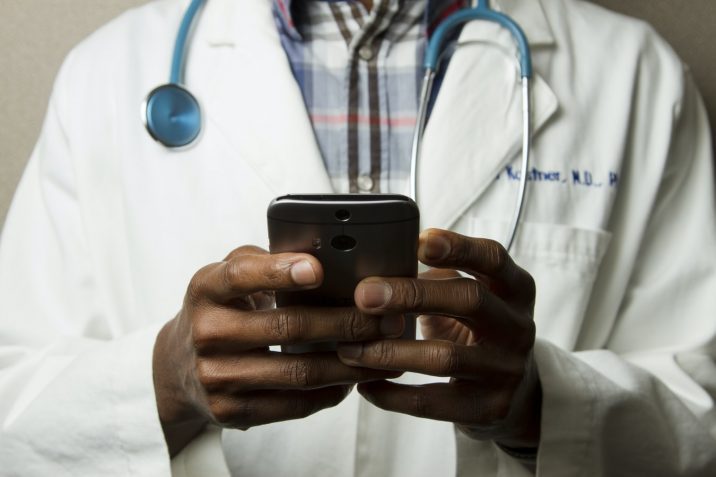As the world comes to grips with one of the most severe infectious disease outbreaks in modern history, global efforts to manage the COVID-19 pandemic by social distancing have quickly brought telemedicine to the forefront of medical care.
Many health care providers are now conducting non-emergent visits by phone or online using a secure teleconferencing tool to interact with patients.
The coronavirus pandemic has impacted the practice of medicine, and research shows America’s telehealth market is expected to jump nearly 40 percent by 2025.
This style of health care is nothing new to Augusta University Health Cardiologist Dr. Robert Sorrentino, one of America’s Top Doctors, according to a recent report from Castle Connolly Medical Ltd.
Dr. Sorrentino helped to launch AU Health’s Cardiovascular Telemedicine Clinic and has performed weekly telehealth visits with his patients living in Sandersville, Georgia. His patients go to a designated health care facility in their area, while Sorrentino speaks with them in real time via webcam. He works with a trained telemedicine nurse in Sandersville who guides his Bluetooth stethoscope to listen to their hearts and lungs and performs a physical exam.
Sorrentino says he is grateful the telemedicine clinic helps him stay in touch with his cardiovascular patients in rural Georgia, and he says this technology has prepared him for what he feels will be the future of medicine.
“Patients and families love telemedicine for the ease and convenience of access to specialty care that they otherwise might not have had,” said Sorrentino. “This health crisis has made telemedicine a mainstay, and it is something that doctors, patients, hospitals, clinics and insurance companies will have to adjust to very quickly. Doctors and physician extenders alike similarly appreciate the ability to provide care in areas with limited access to care or limited access caused by social distancing guidelines. COVID-19 has changed the usual way of conducting medical care and telemedicine, in some form is going to be a permanent part of medicine’s future.”
The opportunity for telehealth services to be a part of standard medical care procedures is growing. However, the challenge health care providers now face is their ability to meet the demands of these unprecedented times.
As a state leader in the pandemic response, AU Health has made strides in using telemedicine to treat patients with COVID-19. More than 20,000 screenings were conducted via AU Health’s ExpressCare App during the height of the pandemic.
AU Health has also expanded its portable ultrasound program to screen patients for respiratory and cardiovascular symptoms related to COVID-19 before being admitted into the hospital.
Additionally, AU Health has stayed ahead of the telehealth curve by anchoring Georgia’s first emergency telehealth network, launching a telehealth consultation service for couples struggling with infertility and helping to successfully establish REACH Health for stroke patients.
If you are a journalist looking to cover the role of telehealth in a post-pandemic era, then let our experts help with your stories.
Sorrentino is a respected leader in the field of telemedicine and serves as the Creel Distinguished Chair in the Department of Cardiology in the Medical College of Georgia. Call 706-522-3023 to schedule an interview with him.
 Augusta University
Augusta University




